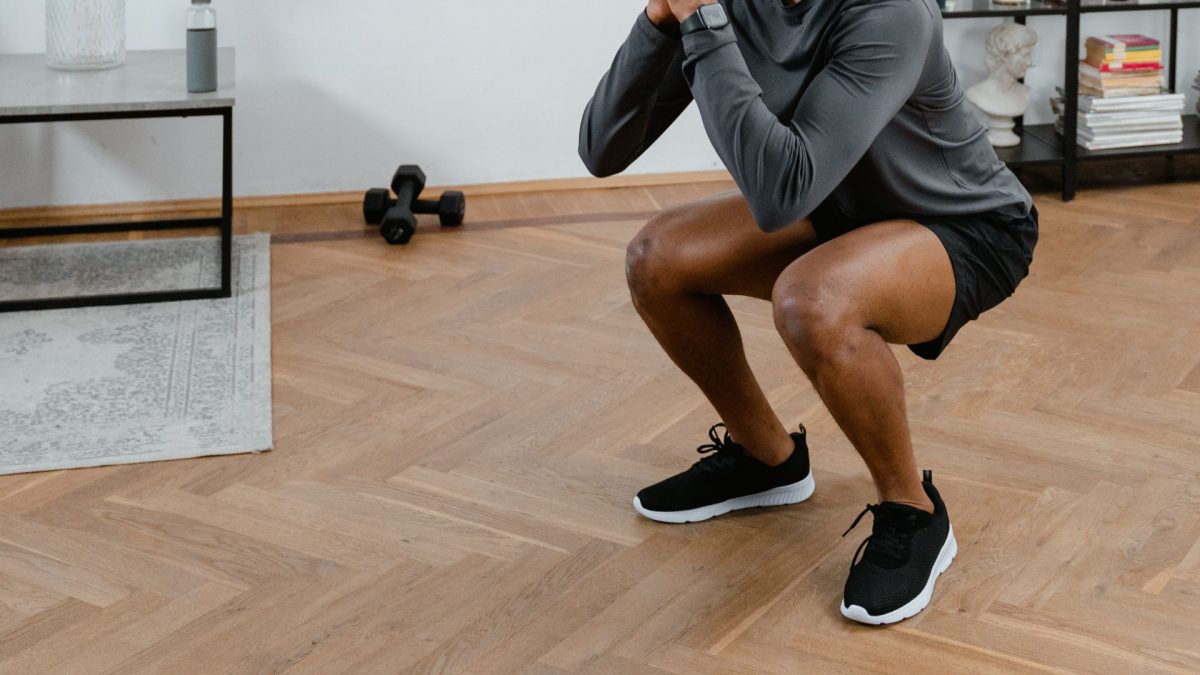How to Relieve Buttock Muscle Pain: 6 Simple Ways

Buttock muscle pain is a result of different conditions that range from mild to more severe health concerns. This kind of pain can cause a lot of discomfort and hinder your day-to-day activities significantly.
The different muscles in the buttock area help support your bodily functions in different ways. You’ll need to use your glute muscles to help you complete various movements from sitting, walking, and running.
So, buttock muscle pain can hinder many movements and interfere with activities you consider normal. In this post, we’ll look at some causes of buttock muscle pain and ways to relieve this pain.
What Causes Buttock Muscle Pain
You may start experiencing pain in your buttock muscles due to different conditions. Some of these conditions include;
Sciatica
The sciatic nerve that runs from your lower back through your buttocks & down each leg may cause burning pain in your buttock muscles when pressed. It may also cause tingling sensations and numbness in the legs.
Muscle strain
If you exercise your glutes too much or stretch them such that they tear, you’ll cause muscle strain. This strain may lead to pain, swelling, and tenderness.
Herniated disk
If one of the disks that shield the bones in your spine slips out from its outer layer, it can press on nerves like the sciatic nerve causing pain and numbness in your buttocks and legs.
Bruising
When you injure your buttock, blood vessels may get damaged from the impact, leading to pain and bruising. You may also notice tenderness and swelling in the affected area.
Bursitis
Your buttocks have fluid-filled sacs that cushion the bones. When these sacs get inflamed, they cause pain to your buttocks. A condition called Bursitis.
Piriformis syndrome
The piriformis is a muscle in the glutes that runs from your lower back to your thighs. When this muscle is overused or injured, it can lead to inflammation causing a lot of pain.
Arthritis
When arthritis affects your hip joints, the stiffness can cause buttock pain and may worsen when you sit for too long or when exposed to the cold.

How to Relieve Buttock Muscle Pain
Relieving buttock muscle pain can be done in different ways depending on the cause of the pain. Here are some ways to try that will bring relief and allow you to get back to normal.
1. Stretching
There are different stretching exercises that are designed to help bring you relief and reduce buttock muscle pain. These stretches help your glute muscles to relax while reducing inflammation and pain.
Planning to stretch regularly is a good way to also promote blood circulation in your buttocks and encourage faster healing. However, remember not to over-stretch your lower body to avoid causing any more problems.
2. Use the RICE Method
A condition like Sciatica has been found to affect 40% of people and even more people experiencing muscle strain. The best remedy for pain caused by these conditions is the RICE method.
This method entails;
- Rest – Resting can help relieve muscle strain and help reduce the pain in your buttock muscles.
- Ice – Using ice-cold packs can help relieve swelling, inflammation, and pain. Take at least 20 minutes with a cold pack to the affected area and repeat at least 4 times per day.
- Compress -Applying pressure on the buttock muscle can help add more compression to relieve inflammation.
- Elevate – Elevating your legs can help encourage blood circulation to help you reduce swelling and pain.
3. Exercise
Conditions like bursitis can be addressed by adopting essential exercises to help relieve the pain and allow you to get your full mobility back. Buttock muscle pain can make other conditions worse and ensuring you work to relieve the pain is important.
In addition, if you struggle with bladder control & MS, these exercises coupled with Kegels can help improve your condition.
4. Take Over the Counter Medication
Taking over-the-counter painkillers can help relieve the pain for a while. Medications like Ibuprofen and Acetaminophen are great examples of pain-relieving drugs that you can access from any pharmacy.
In addition to painkillers, you can also take medication to help reduce inflammation and swelling that may be making the condition worse.
5. Use a Seat Cushion
Seat cushions offer great relief from current pain and prevent you from worsening your condition. If you need to be seated at your desk for some time, seat cushions will help keep you comfortable throughout.
You have different seat cushion options in the market to choose from making it easier for you to find what works for you. If you can get an ergonomic seat that ensures your body alignment is right to avoid strain on your back or buttocks that will be a great investment.
6. Avoid Sitting for too Long
If you can, try to avoid sitting for too long. Take your bathroom breaks while at work. If you can work while standing, this might help you relieve pain. Standing desks at work will help you switch between standing and sitting positions when you need to.
Sitting for too long can add more pain to your muscles and may lead to back pain. So, sitting for shorter periods is preferred and will help relieve existing pain and reduce the chances of getting buttock muscle pain.
Conclusion
Buttock muscle pain can leave you with mobility issues and relieving this pain is essential. Different conditions may lead to glute pain and finding the root cause is a great way to work out what remedy will work best.
However, different relief options will help provide relief by reducing swelling, inflammation, and pain. Stretching and exercising are great ways to stay active and accelerate pain relief.
Taking over-the-counter medicines can also be a good way to relieve buttock muscle pain as you continue working to fully rectify what caused the pain.
